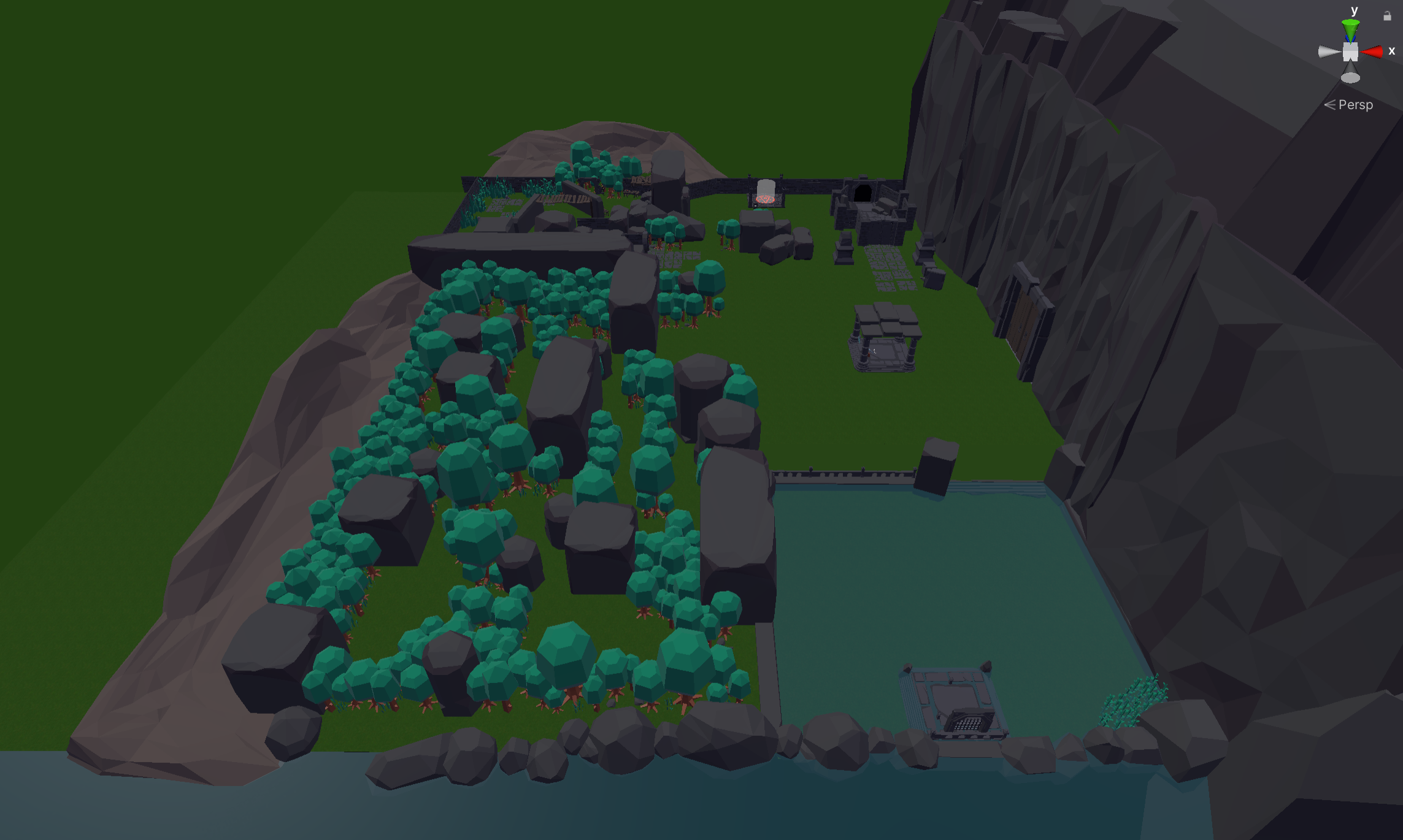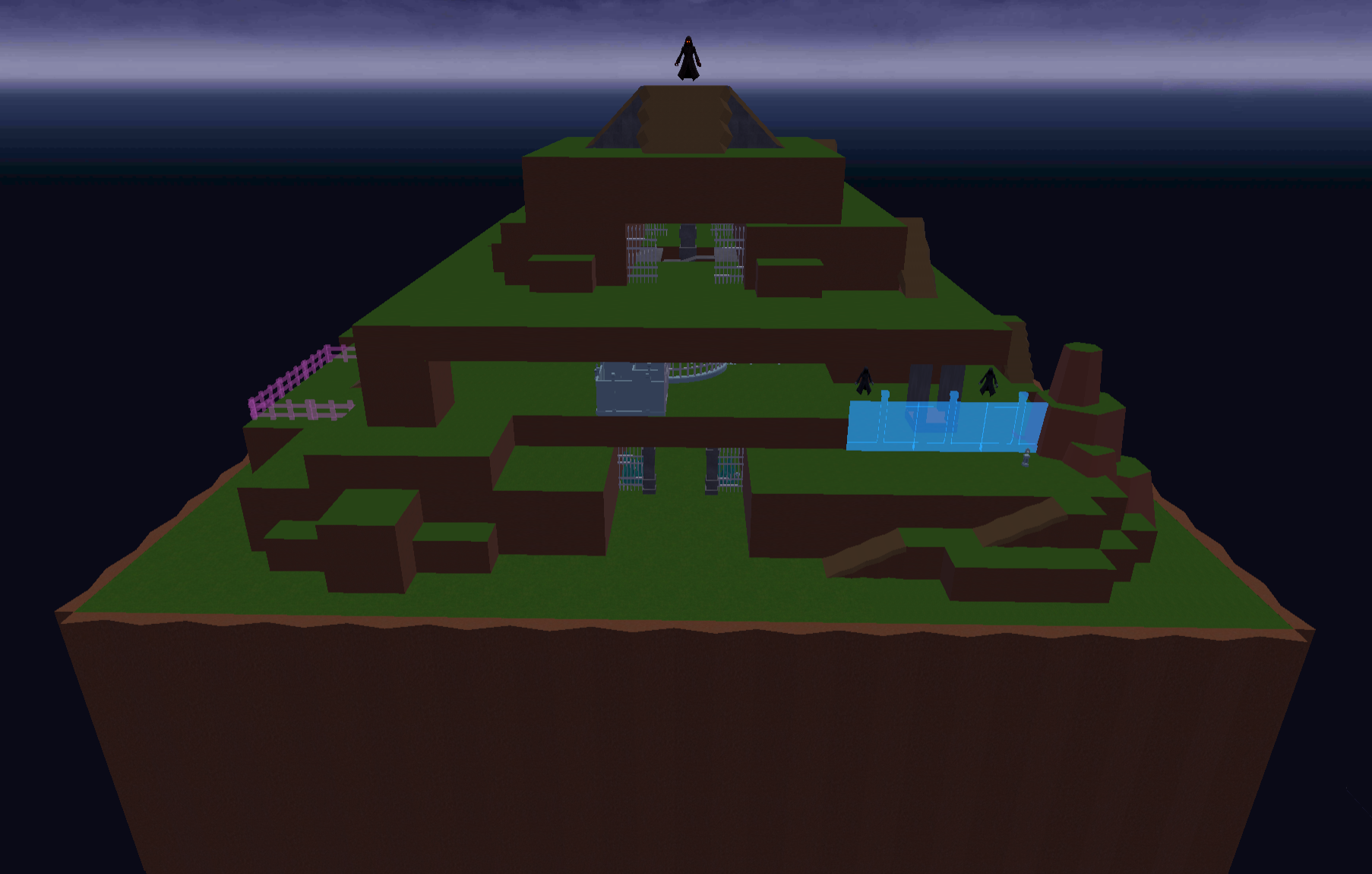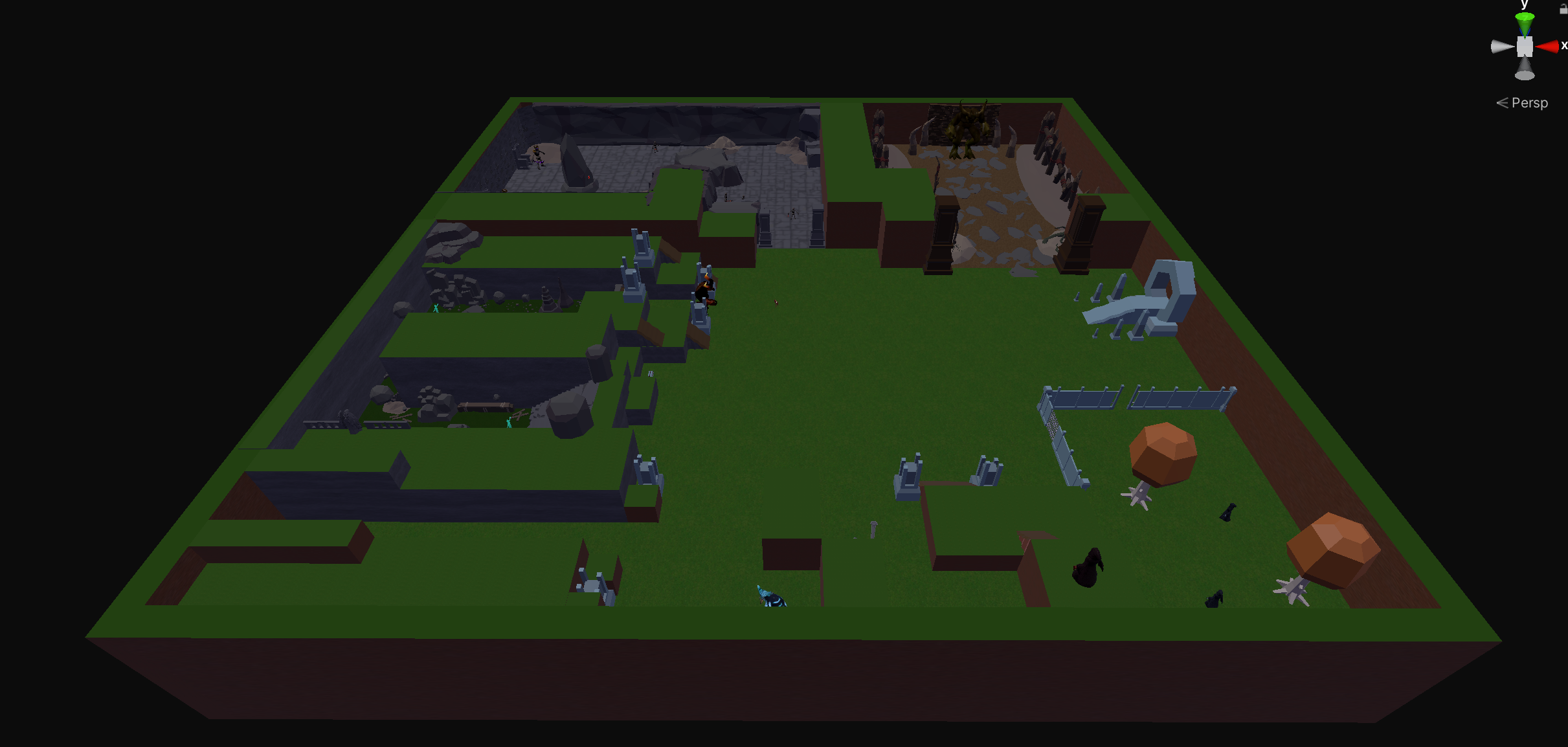Labyrinthian
Labyrinthian is a VR puzzle game prototype developed in Unity with XR support.
See it on GitHub
To play the latest development build, you can download the .apk from the releases tab on the GitHub page! You can also watch a video of the latest development build. The GitHub page is usually the most up-to-date source of content for this project.
Premise
A mage apprentice is sent to the labyrinth by a wrongly cast portal spell. The labyrinth is a place from myth where godlings go to find their powers and become full blooded gods. When godlings come they are given a guiding light and a runic tablet, but as a human your guiding light has not been summoned. You are to find a way through the labyrinth alone with the promise of powerful knowledge and a hope to return home.
Gameplay and Design
Beginnings
The player is dropped into the labyrinth with a very short tutorial and limited explanation of anything but the core mechanics. The only information available at the start is a tablet that explains the premise of the labyrinth and another that explains how to cast spells. In every room there are branching paths that give the player an illusion of choice, but will all need to be traversed/completed eventually to progress. Information that helps the player understand the game will be “hidden” around each starting area. This gives the player a predictable trick that can be found moderately easily (ex. a button on the back of a zone introduction pedestal) to give them a sense of accomplishment and reward them with information. The player (ideally) starts off with no knowledge of the magic system and is only given the rune for the most basic spell “Fireball” at the start, but all spells are unlocked from the start. Also, the game currently works almost exclusively using the grip button and joystick.
Moving Forward
Each path will introduce a new form of magic to the player that will be used in the subsequent puzzles, but past the first puzzle on each path there will not be just one form of magic or game mechanic knowledge needed. The intended effect of this is that progression is locked behind knowledge gates. If the player knows the trick, they can breeze through the levels and skip entire sections if they already know the mechanics or spells that the skipped puzzle will teach.
Motivation
The point of this type of level design and magic system is basically just to make this game into “Power fantasy, the game”. The goal is to make the player feel like a god of magic. Each puzzle and area will have a few alternate solutions where a different spell can solve it just as easily as the one given. Hopefully the player will use spell combinations in a way where they think that the developer (me) doesnt intend for it to be used, and this is exactly what I am aiming for, for it to feel like you are cheating by casting magic. I am hoping that the drive to learn more magic and become even more powerful through knowledge is enough to keep the player interested, I will see how this goes once I can start playtesting.
Recently I have also added PvE combat into the game. Solving the puzzles did not provide enough of a sense of thrill as blasting monsters with powerful magic. The goal is to increase the sense of tension and urgency by strategically placing monsters with very different attack patterns throughout the world. Each monster type should force the player to play with a completely different strategy and variants within the monster type should make the player atleast adjust the basic strategy for that type. The monsters will also have weaknesses to opposing elements of magic than their own, which can be discovered in the lore tablets and hints scattered throughout the world or by intuition if the player is somewhat well-versed in fantasy. (Fire beats Ice, Arcane spells are strong against otherworldly creatures)
Adding Intrigue
The maze will be covered with secrets and lore tablets that will tell the player about the world and hint at the intricacies and depth of magic. Finding these secrets will almost never give the player direct power that they did not already have, most of the time they will give the player knowledge of how to progress quicker and/or find more secrets. An example of this is a hint that lets players know that if they use arcanopulse to nullify magic, and they are using farseer (a spell that makes you go up really high but you are stuck in place) you will be dropped and can move as you fall. It’s completely gamebreaking but that’s kinda the point, its a powerful feeling to be able to subvert the level and puzzle design. Additionaly, the spell casting system will be designed to reward mastery. The skill floor is very low, most scribbles that vaguely resemble the rune will complete the spell, but the better the rune is drawn the more effective the spell will be. A perfectly drawn fireball will be more than 1.5x the size of an average semblance of the rune, and a poorly drawn fireball can be as small as 0.4x the size. Some spells will do more damage with accuracy, some will have enhanced utility, the design possibilities are very open, every spell could have a unique interaction with rune accuracy.
Prototype - This game is in the prototyping stage, there has been very limited playtesting.
(Development has been halted since 2020)
Screenshots



